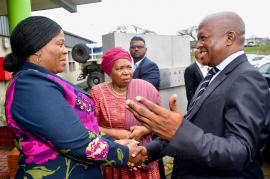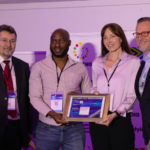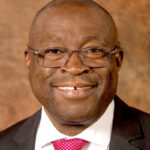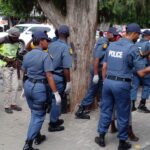Deputy President David Mabuza has encouraged traditional leaders to use their rich culture and heritage to boost tourism.
“It is essential that during Tourism Month, we promote our cultural history, encourage visitors to visit heritage sites and cultural artefacts, and attend to events and activities that narrate our folklore and represent our past, the present and where we are heading into the future,” he said.
In South Africa, Tourism Month is celebrated annually in September to highlight the country’s diverse tourism offerings and the sector’s significant contribution to the economy.
“Our heritage is our wealth, and we need to harness this wealth by preserving and trading in what is sacred to us,” he told the attendees, speaking in his capacity as Chairperson of the Inter-Ministerial Task Team established to respond to matters raised by traditional and Khoi-San leaders.
The country’s second in charge on Friday engaged traditional leaders at Mayville Conference Centre in Durban.
This comes after he paid a courtesy call on Isilo Samabandla, His Majesty King Misuzulu Ka Zwelithini on Thursday.
According to the Deputy President, the ancient San artworks at the Rock Art Centre, the Zulu reed dance, KwaZulu Cultural Museum near Ulundi, which exhibits famous icons of Zulu culture, form part of the tapestry of heritage.
He believes that these attractions hold the potential for the KwaZulu-Natal economy to develop by displaying its glorious history to the world.
“As leaders, it is our responsibility to identify, unlock the potential and nurture all those sectors that hold a promise to create opportunities for the people to earn a livelihood whilst preserving their rich heritage including tourism.”
He also encouraged tourism investment, which will result in a more equitable and sustainable development of traditional communities.
“Your leadership as traditional and Khoi-San leaders has been, and will continue to be critical to the development of a cohesive, unified, and prosperous society that is democratic in nature, and does not discriminate based on race, gender, sexual orientation and political affiliation.”
Community development
The Deputy President told the leaders that government alone cannot bring about the much-needed development in communities.
“Similarly, we cannot achieve our development aspirations and plans, if we work in isolation and detached from the institution of traditional leadership.”
Therefore, he called on the institution located in rural areas, to collaborate with government to identify obstacles that hamper community development.
“Every community and every South African deserve to enjoy the fruits of freedom and democracy, irrespective of location.”
Killings
Meanwhile, he urged the leaders to deal with the callous murders of traditional leaders, especially in KwaZulu-Natal.
“We must ask ourselves tough questions about what is happening in the province of KwaZulu-Natal.”
He strongly condemned the killings of traditional leaders and chiefs.
“We must be able to equally commit ourselves to root out the elements within our society that are responsible for such brutal acts, no matter how difficult this can be.”
In addition, he also said that government is prepared to deploy the necessary resources to confront this challenge.
“We urge amakhosi and izinduna to work with us in this regard,” he stressed.
He also spoke of the ongoing interactions between the government and Traditional Leaders in efforts to address obstacles that limit development in rural communities.
“We are making some headway in this area, and you will learn more about it today when a report on the government’s coordinated response to concerns raised by traditional and Khoi-San leaders is presented,” he added.












